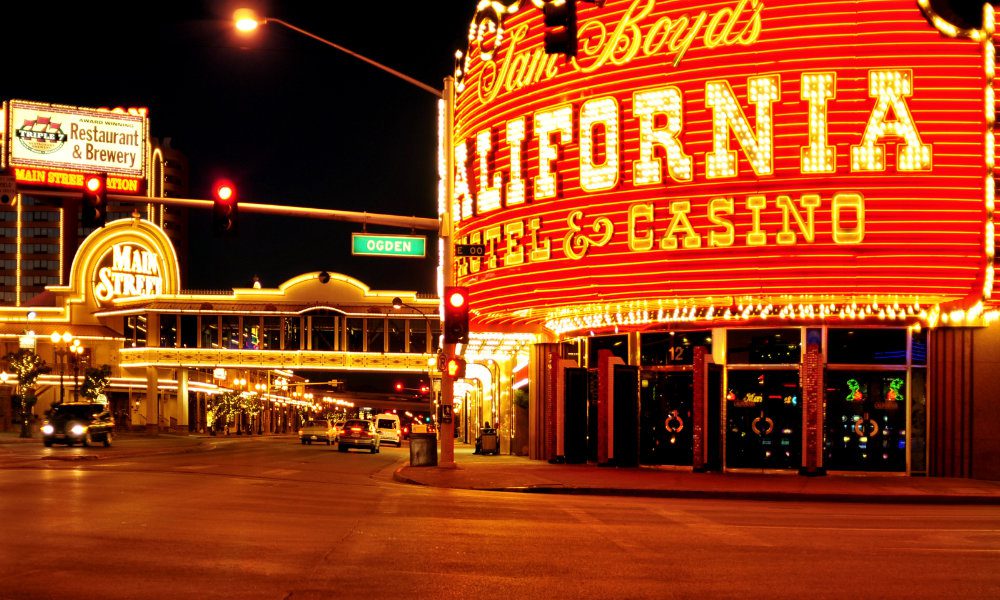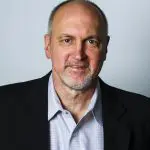A casino project in suburban Las Vegas and the prospect of Boyd Gaming acquiring Penn Entertainment highlighted Thursday’s second-quarter earnings call with Wall Street analysts.
Boyd announced plans to build a new casino on its 15-acre Jokers Wild site in east Henderson. It will be called Cadence Crossing and sit adjacent to the Cadence Master Planned Community in Henderson, with construction starting later this year and an opening date in early 2026.
Some $100 million has been budgeted for that effort and for added convention space at Ameristar Casino Resort Spa in St. Charles, Missouri. There are also plans for major hotel room renovations in the portfolio, including at the Orleans in Las Vegas, with another $100 million allocated in 2024 and 2025.
“Following the completion of the Ameristar and Cadence projects, we expect to announce another set of projects,” said Boyd CFO Josh Hirsberg. “Think of it as a pipeline of projects we choose from each year in order to invest about $100 million a year in growth-related capital. You should expect total capital of $400 million to $450 million in both 2024 and 2025, before stepping down to $300 million to $350 million following the completion of our hotel renovations.”
The Cadence Crossing casino will feature a 10,000-square-foot casino with 450 slot machines, dining, and entertainment. The Jokers Wild will remain open, then be demolished after the new property opens. That enables Boyd to expand the casino and add a hotel and more amenities.
“We’ve been watching that community develop for a long time, because it’s in our backyard,” said Boyd CEO and President Keith Smith. “We have a sense of how we can build that business, so we’re opening what I call a modest investment, but clearly with the opportunity to expand. As that community grows, we can grow with it, based on demand.”
Cadence is expected to have 12,000 homes after its build-out, Smith said. Upwards of 5,200 homes have already been constructed.
In June, Reuters reported the Las Vegas-based company’s interest in acquiring regional operator and rival Penn Entertainment. Such a deal would be the largest merger between U.S. gambling operators since the $17.3 billion acquisition of Caesars Entertainment by Eldorado Resorts in 2020. Penn operates 43 casinos in 20 states.
In response to a question that a majority of Boyd’s growth has come through M&A, Smith said it has developed “great expertise” in knowing how to buy companies and properties and to extract value once they’re part of the portfolio.
“We’ve always been willing, and it’s not news, to take a hard look at opportunities that arise,” Smith said. “We’ll continue to do that. In terms of how we may finance a particular transaction, it’s totally dependent on the facts and circumstances around the transaction. It’s hard to speculate on how we might do that.”
Reports called such a merger a challenge, since Boyd as a smaller operator than Penn would need financial firepower to clinch a deal. Gaming regulators from Nevada and other states would have to approve the deal, and the Walt Disney Company was cited as a potential obstacle, given Penn’s licensing arrangement with ESPN for ESPN Bet.
Hirsberg said to “the extent they would leverage up to do a transaction,” such as a development opportunity or acquisition, they have a long-term leverage target to be below three times traditional leverage, in the neighborhood of where they are today. They would have the ability to get back to that level quickly, he added.
The financial markets won’t drive their ability to execute a transaction, but acquiring assets that have a “strategic rationale” and an acquisition that generates free cash flow and the valuation make sense, Hirsberg said.
The Penn-owned M Resort in Henderson is under the investment community’s microscope, after an investor told Penn’s board of directors that it should sell all or part of the property.
Smith said Boyd’s strategy is to buy assets where they have ownership of both the operations and underlying land, made more difficult today, since many operators have sold their real estate.
“We’re certainly willing to do that,” Smith said. “We did that with the Pinnacle assets we bought years back, so it’s not an impediment to buying opco [operating-company] assets. In terms of monetizing our existing real estate, we have the same view we’ve always had: We have the opportunity to do it if the transaction makes sense. We retain great flexibility by owning our own real estate. We think we can finance in less expensive ways than trying to monetize our real estate.”
Hirsberg addressed the competition Boyd is facing in Las Vegas with the opening of the Red Rock’s Durango Casino & Resort late last year and addressed other properties offering promotions to lure away customers. He said they’re not responding dollar-for-dollar with what’s happening, instead focusing on their strategy. The Gold Coast and Orleans were impacted the most.
“We’re not being aggressive in our marketing,” Hirsberg said. “Our overall marketing in terms of revenue has remained consistent and you can see with consistent levels of reinvestment we’ve been able to grow share. We don’t think it’s a profitable strategy to go head-to-head on that level of competition. We’ve remained focused on our core customer and focused on pursuing profitable business.”



